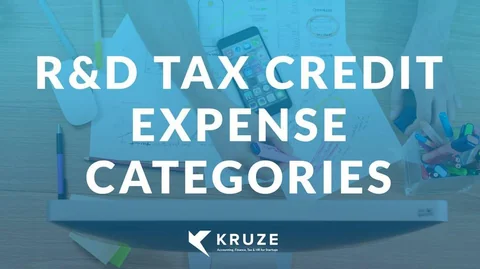
The R&D tax credit has become a game-changer for venture-funded startups in recent years, with many companies receiving substantial tax savings from the IRS. If you’re building something innovative, understanding which expense categories qualify for the Research and Development tax credit can significantly reduce the taxes your startup pays. Our handy R&D tax credit calculator can help you estimate your possible savings.
Four Key R&D Tax Credit Expense Categories
When assessing your eligibility for the R&D tax credit, it’s crucial to focus on the following four expense “buckets”:
1. Wages
Wages are usually the largest component for startups claiming the R&D credit. Specifically, you can include the salary costs of employees directly involved in research and development activities – most often your engineers and technical staff. Accurate time tracking is essential to differentiate between R&D and non-R&D work, as only activities focused on developing new products or processes qualify.
2. Subcontractors
Payments to subcontractors who are engaged in qualified R&D projects are also eligible expenses. If you hire outside experts – such as engineering consultants or specialized R&D firms – to contribute to your innovation, those costs can count toward your credit, provided their work is directly related to your qualified research.
3. Supplies
This category mainly applies to hardware startups. Supplies can include the physical materials and components used in building prototypes, machines, or other tangible goods as part of your R&D efforts. Remember, routine office supplies do not qualify – only items directly consumed in the R&D process are eligible.
4. Leased Computers
While less common, the cost of leasing computers solely dedicated to qualified R&D activities can be included. If you leverage significant computing power (for example, cloud computing resources) specifically for R&D projects, don’t overlook this potential category when calculating your credit.
Don’t Leave Money on the Table
Properly classifying and documenting these expenses is essential to maximize your R&D tax credit and withstand potential IRS review. The process is complex, but the financial impact can be substantial – Kruze Consulting’s clients have received checks ranging from $50,000 to $250,000 or more for qualifying research activities.
If you’re unsure whether your startup qualifies for the R&D tax credit, or want to make sure you’re accurately capturing all eligible expenses, reach out to Kruze Consulting. Our experienced team can guide you through the process and help you claim every dollar you’re entitled to.








